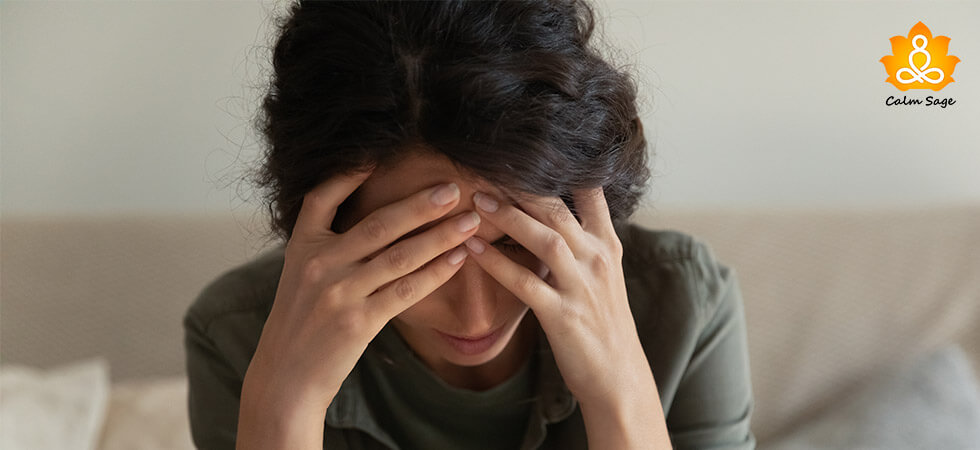When Your Anxiety Won’t Quit: Managing Treatment-Resistant Anxiety

I live with anxiety, but the weirdest thing is that whenever I feel that I’m doing OK, my anxiety pops up like a jack-in-the-box – one that no one likes or appreciates. So, I get it when all you feel is that you’ve been battling anxiety for what feels like forever. You try your best to stay afloat, white-knuckling it through your routine with a constant knot of worry in your stomach.
There comes a time when you seek therapy for anxiety – after all, nothing else feels like a lifeline. So, you seek help, medications, and whatnot. But as weeks turn into months, the nagging anxiety just won’t budge, and you’re left wondering, “Will it ever end?” This is what the frustrating reality of treatment-resistant anxiety looks like.
Here’s the deal, though; anxiety disorders are common, affecting millions of people around the world. The good news is that there are treatment approaches to help deal with anxiety symptoms. But the bad news? Not all treatment approaches for anxiety work for everyone. For some people, this first course of action doesn’t bring the relief they seek.
That’s where treatment-resistant anxiety comes in, and it can feel like a truckload of frustration and fear hit you at the speed of a bullet train.
This article explores treatment-resistant anxiety, why it happens, and what to do when anxiety doesn’t get better with medication and therapy.
What is Treatment-Resistant Anxiety?
Think of treatment-resistant anxiety as that weed in your emotional garden that you can’t pluck, no matter how hard you try. You’ve tried everything, but the thing just won’t go. Technically, this can be defined as experiencing severe anxiety symptoms despite trying at least one standard treatment plan aka medication and therapy for at least 8 weeks.
It doesn’t mean that you’re broken or that there’s no hope for you. It simply means that we need to tweak our approach and explore other options and alternatives to treat anxiety.
Before I get to the alternatives to treating anxiety when you’re experiencing treatment-resistant anxiety, let’s take a quick look at the symptoms of treatment-resistant anxiety.
Symptoms of Treatment-Resistant Anxiety
Anxiety can manifest itself in different ways. So, the symptoms and signs of treatment-resistant anxiety can mirror the type of anxiety you’re experiencing – generalized anxiety disorder, social anxiety, panic disorder, etc.
Some common symptoms of treatment-resistant anxiety can include;
- Even after consistent treatment, your anxiety symptoms remain largely unchanged in intensity and frequency
- You feel defeated, frustrated, and hopeless, which only worsens your anxiety
- Your anxiety significantly impacts your ability to work, maintain healthy relationships, or participate in daily activities
- You respond poorly to anxiety medications and nothing you try works anymore
- You experience frequent panic attacks that continue even after you try to manage them
- You experience other co-occurring conditions such as depression, obsessive-compulsive disorder, etc.
- You experience constant worry, fear, and distress that you can’t seem to let go, despite treatment
If these symptoms are familiar to you, then it’s time to talk to your therapist. You don’t have to suffer in silence. A therapist can help you adjust or alter your treatment plan to suit your needs better.
We all experience anxiety differently, but here’s what treatment-resistant anxiety might look like in general;
- You feel stuck in an emotional rollercoaster where your anxiety is relentless, with no end in sight
- You feel a constant weight on your chest as if you’re carrying a suffocating burden of worry that never lightens
- You feel trapped in a loop of negative thoughts where you always think about the worst-case scenarios that feed your anxiety further
These are just some common examples of treatment-resistant anxiety. Anxiety is already tough to deal with, and struggling with treatment resistance makes it even tougher.
What Causes Treatment-Resistant Anxiety?
There is no single cause for treatment-resistant anxiety, but it can be a combination of different factors, such as;
- Having an underlying medical condition like thyroid or chronic pain
- Using substances like alcohol and drugs
- Having a co-occurring mental health condition like depression or ADHD
- Experiencing ongoing stress
Treatment-Resistant Medication Options…
If the first line of medications isn’t helping in managing anxiety, then your doctor might suggest increasing or decreasing your current dose. The therapist might even recommend using a combination of different medications to target specific aspects of your anxiety. Several classes of medication can be used to treat anxiety, so your doctor might help you explore some alternatives.
Just remember that medication is always a decision you make after carefully considering your doctor’s words and warnings. Never adjust your anxiety medication dosage without your doctor’s guidance.
Alternative Therapy Approaches For Treatment-Resistant Anxiety
There are a lot of approaches that go beyond traditional therapy and medications. Here are some alternative options to explore to treat your treatment-resistant anxiety;
1. Neuromodulation Techniques
Techniques such as transcranial magnetic stimulation (TMS) and transcranial direct current stimulation (tDCS) can be used. These techniques use magnetic or electrical pulses to stimulate specific areas of the brain, reducing anxiety symptoms.
2. Biofeedback
This technique can help you learn how to control your body’s responses to stress by providing real-time feedback on things like heart rate, muscle tension, and more.
3. Mindfulness-Based Stress Reduction (MBSR)
This technique teaches you mindfulness meditation and yoga techniques to help you manage stress and reduce anxiety in the present moment. You can enroll in MBSR programs online and practice them daily to reduce anxiety symptoms.
4. Acceptance and Commitment Therapy (ACT)
Acceptance and commitment therapy or ACT focuses on accepting difficult thoughts and emotions while taking committed actions toward your values. With this, you can learn to let go of your unhelpful thoughts and focus on feelings that align with your values and purpose in life.
5. Exposure Therapy With VR
This cutting-edge therapy approach uses VR (Virtual Reality) technology to create a visual safe and controlled exposure to situations for social anxiety, anxiety disorders, and irrational fears. Through this treatment, you learn that what you fear is less likely to occur in real time, reducing your anxiety symptoms.
6. Eye Movement Desensitization And Reprocessing
EMDR for anxiety can be used to treat trauma-related anxiety. You’re asked to recall a trauma memory while, at the same time, tracking the eye movements and stimulation provided. This can make you feel less anxious when recalling traumatic events and help you process them better.
Coping With Treatment-Resistant Anxiety
Living with treatment-resistant anxiety needs a proactive approach, especially when you feel constant anxiety even with medications and without.
Here are some ways you can cope with treatment-resistant anxiety;
- Take Care of Yourself: Make sure you get enough sleep, eat a healthy meal, and engage in regular exercise to manage anxiety symptoms. These practices can create a foundation for managing and controlling anxiety.
- Practice Relaxation: You can try deep breathing, progressive muscle relaxation, and meditation to calm your mind and body in the moment. These practices can make anxiety feel a lot less daunting.
- Join a Support Group: You can also connect with others who understand your struggles or are going through something similar. Your struggles are unique to you, but talking to others with similar experiences can be validating.
- Question Negative Thoughts: Anxiety loves negativity, so learn to identify and question any unhelpful or negative thought patterns that pop up in your mind. It’s important to focus on the bigger picture than fixating on what’s in front of you.
- Live Healthily: Make sure you limit alcohol and caffeine, as these substances can worsen your anxiety and make it hard for medications and therapy to work, creating a way for treatment-resistant anxiety to rein.
- Be Persistent: Finding the right treatment – treatment-resistant anxiety or not – can take effort and time, so don’t lose hope and give up. Be persistent and try different alternatives until you find the one that works best for you.
Wrap Up…
Treatment-resistant anxiety might feel like a hurdle, but like everything, it’s not a dead end. Proper communication with your therapist, exploring alternative therapies for treatment-resistant anxiety, and practicing self-care can help you find relief and build a brighter and calmer future together.
You’re not alone. There’s hope, and there are tools available to help you control and manage your anxiety symptoms. So, take a deep breath, keep your crown up, and just keep moving. You’ve got this, just like everything else!
I hope this blog helped you understand what treatment-resistant anxiety is, how it impacts us, and how you can manage treatment-resistant anxiety. Let us know your thoughts in the comments below.
Take Care!




















